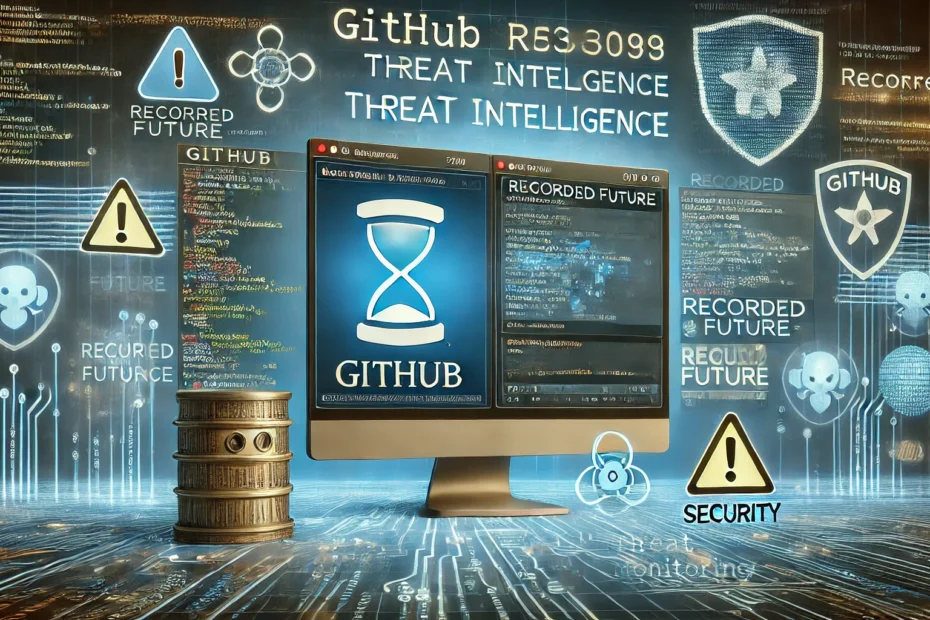In today’s fast-paced digital world, strong cybersecurity measures are more essential than ever. One key player in threat intelligence is Recorded Future, a company renowned for its real-time data on cyber threats. In this post, we’ll dive into the integration of Recorded Future with GitHub, also known as “Githubclaburn.” This combination is revolutionizing cybersecurity by providing organizations with actionable intelligence to defend against online threats.
What is the Recorded Future?
Recorded Future specializes in providing real-time cybersecurity threat intelligence. The company, founded in 2009, gathers and analyzes vast amounts of data from sources like the dark web, forums, and technical blogs. It uses machine learning to detect potential cyber threats, empowering businesses to stay ahead of hackers.
The Role of Recorded Future in Githubclaburn
“Githubclaburn” refers to the collaboration between Recorded Future and GitHub, a widely used platform for software development. This partnership aims to address the growing number of cyber threats targeting open-source repositories on GitHub. John Claburn, a cybersecurity journalist, brought attention to the risks of attackers exploiting GitHub for malicious activities. This collaboration focuses on protecting codebases and identifying threats.
How Does Recorded Future Integrate with GitHub?
GitHub, a key platform for software development, also faces exploitation by cybercriminals. They often distribute malware or search for vulnerabilities within open-source codebases. Recorded Future’s integration with GitHub helps security professionals monitor repositories for security flaws, leaks, or potential malicious actions.
Key Features of the Integration:
- Proactive Threat Detection: Recorded Future scans public repositories to identify any suspicious or harmful code.
- Vulnerability Alerts: The platform alerts developers when their code contains vulnerabilities that could be exploited.
- Real-Time Insights: It delivers real-time updates, enabling quick action to address emerging threats.
This integration empowers developers, IT teams, and cybersecurity professionals by providing actionable intelligence for defending their GitHub projects.
Benefits of Recorded Future Githubclaburn Integration
The partnership between Recorded Future and GitHub brings numerous advantages, particularly in vulnerability management, threat assessment, and compliance with cybersecurity standards.
1. Early Threat Detection
One major benefit of this integration is early detection. By scanning repositories in real time, cybersecurity teams can spot and address vulnerabilities before hackers exploit them.
2. Strengthened Code Security
Developers receive instant notifications of security flaws in their code. This allows them to resolve vulnerabilities quickly, keeping their projects secure.
3. Deeper Threat Insights
Combining Recorded Future’s threat intelligence with GitHub’s repository data gives organizations valuable insights into potential risks. With this knowledge, they can prioritize resources to address the most urgent threats.
4. Automated Security Measures
Recorded Future automates the process of identifying and mitigating security issues. This saves time and reduces human error, ensuring better protection for GitHub repositories.
5. Compliance with Security Regulations
Staying compliant with cybersecurity regulations is crucial for many organizations. The integration helps companies monitor their repositories and address security issues in real-time, keeping them compliant with industry standards.
How to Get Started with Recorded Future Githubclaburn
Interested in using this powerful integration? Follow these steps to get started:
- Create a Recorded Future Account: Sign up for an account with Recorded Future. They offer various plans to meet the needs of businesses of all sizes.
- Integrate with GitHub: After signing up, connect your GitHub repositories to the Recorded Future platform. This allows it to start monitoring your projects for security risks.
- Configure Alerts: Set up real-time alerts for any vulnerabilities or suspicious activities in your repositories.
- Analyze Threat Intelligence Reports: Review the threat intelligence reports provided by Recorded Future. These reports help you understand the risks and respond swiftly to potential cyber threats.
- Collaborate with Your Security Team: Ensure your development and IT security teams work together. By using Recorded Future’s insights, your organization can improve its overall cybersecurity stance.
Why You Should Use Threat Intelligence Tools
Failing to use a threat intelligence platform like Recorded Future exposes your organization to significant risks. Without real-time monitoring, you may overlook early signs of a cyberattack. This could lead to data breaches, financial losses, or reputational damage.
Cybersecurity Threats on GitHub
GitHub is not immune to attacks. Here are a few common types of threats on the platform:
- Cryptojacking: Attackers often distribute cryptojacking malware, which hijacks a victim’s computer resources to mine cryptocurrency.
- Supply Chain Attacks: Some hackers exploit vulnerabilities in widely used open-source libraries, targeting projects that depend on these libraries.
- Data Leaks: When repositories aren’t properly secured, sensitive information like API keys and passwords can get exposed.
FAQs About Recorded Future Githubclaburn
1. What is Recorded Future Githubclaburn?
This term refers to the integration of Recorded Future’s threat intelligence capabilities with GitHub. It helps users detect and mitigate cybersecurity threats in their GitHub repositories.
2. How does Recorded Future monitor GitHub?
Recorded Future scans public repositories for signs of suspicious activities, code vulnerabilities, and potential data leaks, sending real-time alerts when it detects issues.
3. Does Recorded Future prevent all cyberattacks?
While no tool can prevent all attacks, Recorded Future significantly improves your ability to detect and respond to threats before they cause damage.
4. Is this tool suitable for small businesses?
Yes, Recorded Future offers solutions that are scalable, making it suitable for businesses of all sizes. Small businesses benefit from early threat detection and vulnerability management.
5. How do I connect Recorded Future to my GitHub account?
First, sign up for a Recorded Future account. Then, follow the platform’s instructions to connect your GitHub repositories and start receiving real-time security alerts.
Conclusion
The Recorded Future and GitHub integration offers an effective solution for securing codebases against cyber threats. Whether you’re running a small business or a large enterprise, this collaboration enhances your threat detection capabilities and strengthens your security posture. By leveraging Recorded Future’s threat intelligence, developers and IT teams can protect their projects, stay compliant with regulations, and reduce the risk of costly cyberattacks.
Stay ahead of cyber threats by integrating Recorded Future with your GitHub repositories today. For more cybersecurity tips and insights, check out themrb.net.
